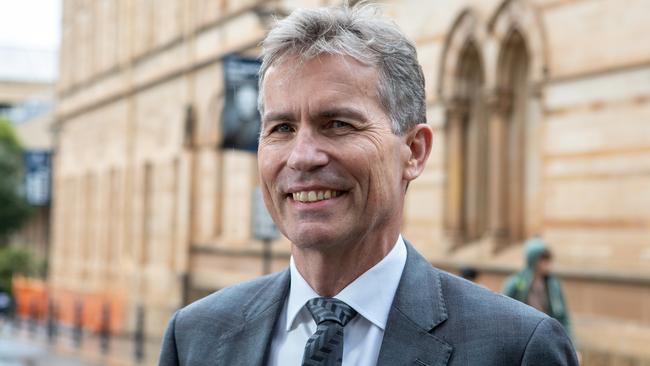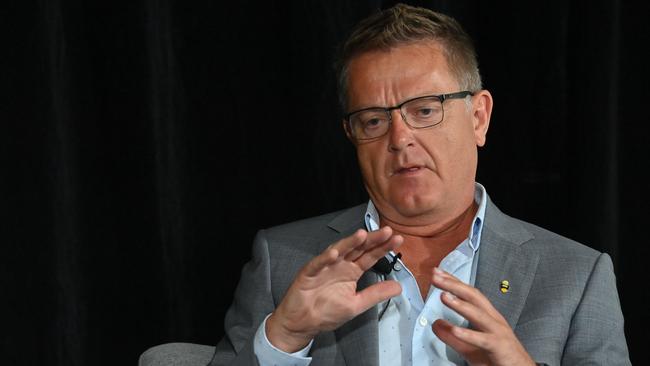Adelaide Uni boss Peter Hoj sounds the alarm over high school students shunning STEM subjects amid defence skills shortage
Adelaide Uni’s VC has sounded the alarm over the number of high school students shunning STEM subjects in favour of courses that provide an easier route to a higher ATAR.
Tertiary
Don't miss out on the headlines from Tertiary. Followed categories will be added to My News.
High schools are at risk of axing crucial science and maths subjects amid a sluggish uptake that spells trouble for Australia’s skill shortage, the head of the University of Adelaide says.
As the defence industry faces a worrying skills crisis, Vice Chancellor Peter Hoj has sounded the alarm over the number of high school students shunning STEM subjects in favour of easier courses that provide a more simple route to a higher ATAR.
“It’s important for people to understand that the world has changed and the country really would benefit from us thinking about this,” Professor Hoj said.

Data shows the number of SACE students studying specialist mathematics has been stagnant for nearly 10 years. Last year, 1038 students were studying the subject, down slightly from 1050 students in 2012.
Physics participation has plummeted from 2079 to 1662 in the same period, while the number of chemistry students dropped from 2199 to 1886.
Professor Hoj said universities must reconsider how they selected high school leavers, calling for a greater emphasis on prerequisites rather than the “rough instrument” of an ATAR score.
“It would be appropriate for us to look at whether there are any perverse incentives that drive students away from studying what would serve them really well for their further education,” he said.
Prof Hoj said if all students chose “easier” subjects over mathematics and science, high schools would consider cutting them from curriculums.
“I know that if we didn’t require extended maths to get into engineering at the University of Adelaide, there would probably be some schools that wouldn’t operate anymore,” he said.
“We certainly want to be part of the solution, and we are working closely in defence related areas.”
Prof Hoj said more support should be committed to attracting top maths and science teachers to outer suburban and regional schools.
Flinders University Vice Chancellor Colin Stirling said humanities were still vital, but agreed schools should be open to tweaks to alter “incentives” for certain subjects.
“However we do things today, it’s going to get bigger, better, faster, strong tomorrow, and what we all collectively need to do is to work together to ensure our education system is as agile as it can possibly be,” Professor Stirling said.
“We know there’s this huge looming skills gap, and it’s not that the people we’re producing aren’t skilled enough – it’s that we need to produce more of them.”
Both universities run various programs to help boost STEM participation.
A SACE Board spokesman said: “We are dedicated to encouraging students to choose subjects that support their passions and interests, but also to best set them up for their chosen pathway.”
“If there are gaps in our subject offerings, we are keen to work with the schools, students and the community,” the spokesman said.

Craig Lockhart, the managing director of Hunter-class frigate builders BAE Systems Australia, proposed new defence academies should be established across the country, offering a range of hi-tech courses and defence trades to Year 11 and 12 students.
“It could be a multi-campus academy including TAFE and university – bringing the best of research, innovation and technology, but firmly centred on early careers learning,” Mr Lockhart said.
Defence SA boss Richard Price said the number of people with the skills and desire to work in advanced manufacturing had “significantly declined” in recent decades.
“For many years people were told that the future of work in developed countries was in service industries, not advanced manufacturing,” Mr Price said.
“Many defence industry jobs do not require a university education and well over half of today’s workers have entered the industry via other pathways, including vocational education and apprenticeships. Awareness of the diverse roles and educational pathways available is important.”
gabriel.polychronis@news.com.au





